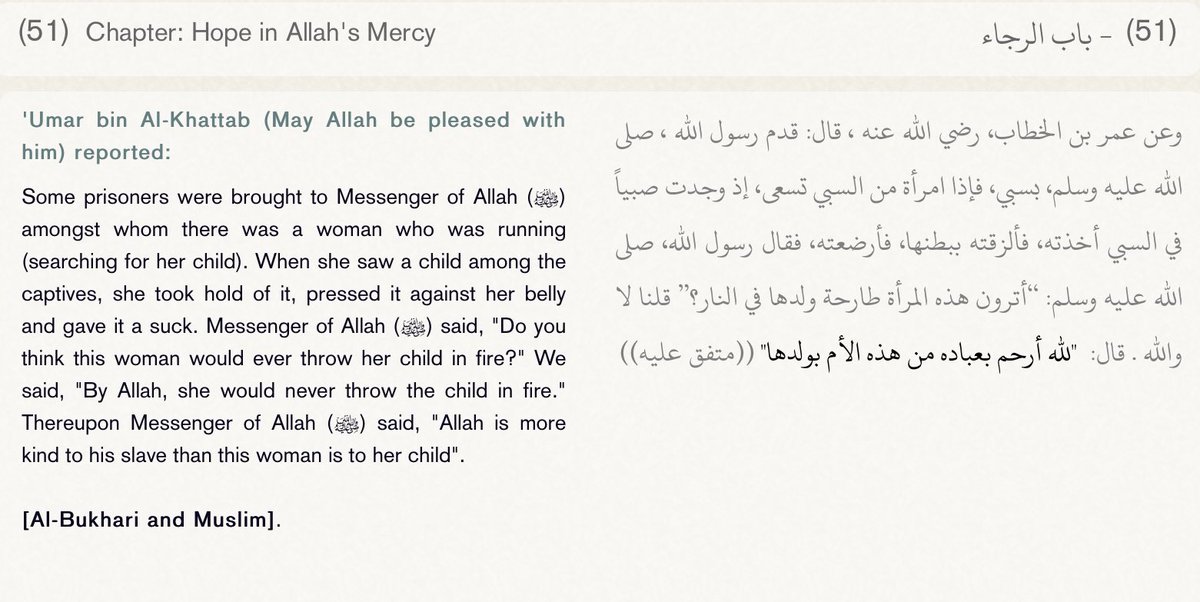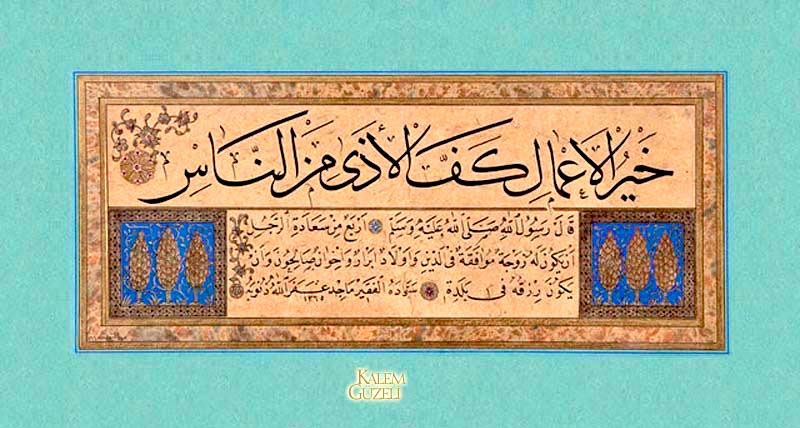Bismillah. Thread.
Why is beautiful conduct to parents so closely tied to Pure Monotheistic Worship in the Quran?
God says : Your Lord has commanded that you should worship none but Him, and that you be kind to your parents (Quran 17:23)
Why is beautiful conduct to parents so closely tied to Pure Monotheistic Worship in the Quran?
God says : Your Lord has commanded that you should worship none but Him, and that you be kind to your parents (Quran 17:23)

It’s the realization that God doesn’t expect us to be perfect. He expects us to be grateful. This is Ultimate Mercy from Him, for He is Perfect, Exalted above all deficiency, Magnified beyond measure, Holy and Sanctified. He deserves perfection. Instead, he commands to Ihsān. 

Parents weren’t perfect, but they cared.
If we don’t want God to take us to account based on “perfection”, but on the goodness of our intentions & recognition of our deficiencies, then let us not set perfection as a condition for treating our parents with mercy and respect.
If we don’t want God to take us to account based on “perfection”, but on the goodness of our intentions & recognition of our deficiencies, then let us not set perfection as a condition for treating our parents with mercy and respect.

Parents, by nature, and especially mothers, love their children in a way that mimics Divine Mercy. Rasūlullāh explained this inexplicable concept to the Companions by making an illustrative analogy to a mother’s love.
sunnah.com/riyadussalihin…
sunnah.com/riyadussalihin…

The Quran exhorts children to uphold their parents rights, and not vice versa, for this very reason — on the assumption that you don’t need to tell a parent to love and care of their kids any more than you need to tell them to breath. Its a natural human instinct.
It is a natural human instinct, the loss of which is a sign of a deranged and diseased nature. Thus, parents who abuse their children, neglect them, or fail to rear them in a wholesome way have not just breached a Law of God, they have breached a Law of Creation. Quran 7:156 





It is said about verse (28:7) in which God inspired the mother of Moses to nurse her child, that a special meaning must be intended in the verse, as every mother intuitively feels the urge to nurse her child. Rather, God willed to place immense spiritual increase in her milk... 

Rather, God willed to place immense spiritual increase in her milk by rendering her act one of worship to Him, above and beyond her primal human instinct. Through this blessing, it is said that baby Moses was satiated by the suckling for several days; an extraordinary phenomenon 





If we hope to gain spiritual increase in our lives, then let us be kind to our parents. Let us nurse them, as they did us, by the blessing of the Divine Command — that God may overlook our faults and take us to account gently, not by the measure of unattainable perfection. 





• • •
Missing some Tweet in this thread? You can try to
force a refresh
















